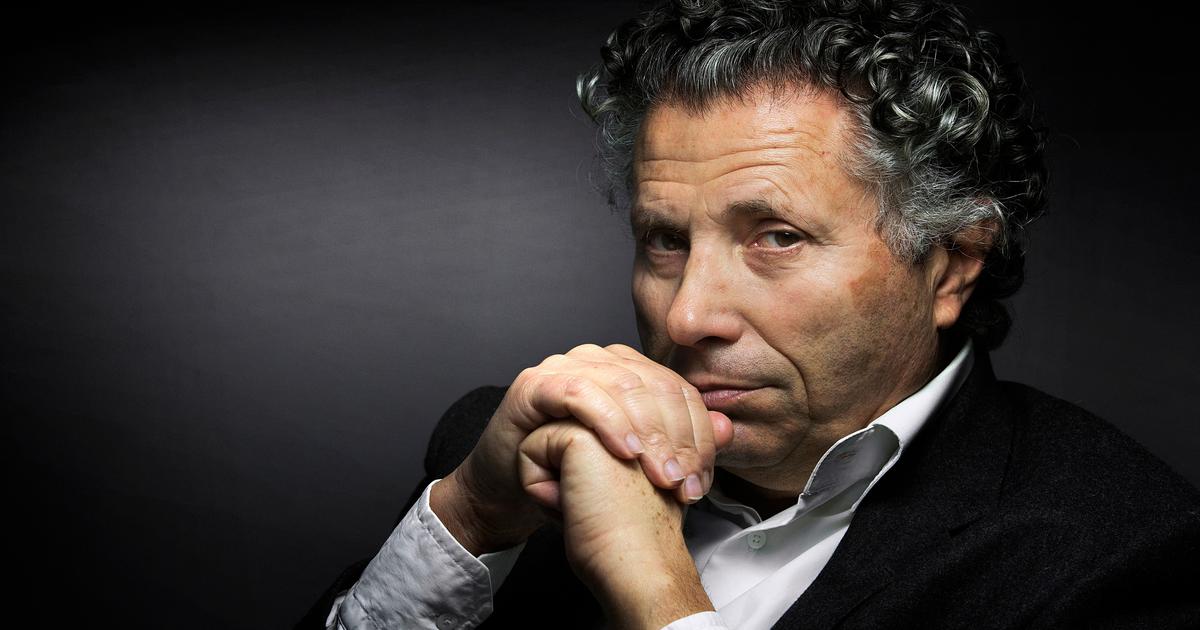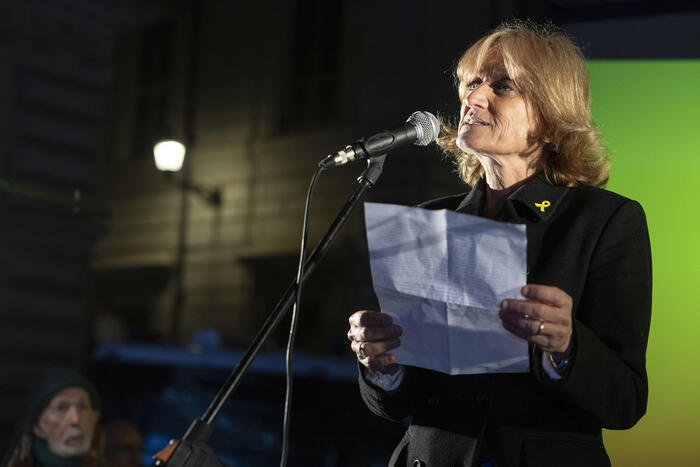When carnival rhymes with anti-Semitic stereotypes. Since Sunday, the Belgian city of Aalst has been the subject of intense controversy: in question, its carnival, during which passers-by could see caricatures of Jews decked out with a hooked nose, other costumes mixing bodies ants and hats of orthodox jews or a wailing wall in gold bars.
The next day, it was towards Spain that eyes turned. On Monday, during the Carnival of Campo de Criptana, participants paraded in disguise as Nazi soldiers, while others donned the uniforms of prisoners from concentration camps.
Condenamos la v y y repugnante representación banalizando el Holocausto en el carnaval de Campo de Criptana, haciendo burla de los seis millones de judíos asesinados por los nazis.
¡Los países europeos deben combatir activamente el antisemitismo! Https: //t.co/0A96StZOrh
Two events which sparked a thunder of indignant reactions, emanating in particular from Jewish organizations and political parties. Madrid, on Wednesday, castigated this "trivialization of the Holocaust" and the city of Campo de Criptana became confused with excuses by assuring, in a confusing line of defense, that it was a question of paying a "tribute" to the six million victims of the Holocaust.
"Three days in a year, no more no less"
In Belgium, this parade is part of a much deeper history of outrage. If the Prime Minister Sophie Wilmès rebelled against “damage to the reputation of Belgium”, the mayor of the Flemish city of Aalst continued to support the initiative. “We are not an anti-Semitic or racist city. Just the opposite. Here, we have a very special context which is a bit irrational, but limited in time: three days in a year, no more no less, ”commented Christoph D'Haese elected nationalist party N-VA, to RTBF , about this 600 year old carnival.
The Belgian city of 90,000 inhabitants had already distinguished itself last year, during this same event, by welcoming a float "conveying anti-Semitic stereotypes, making links between Jews and money and using images of propaganda Nazi ”, is saddened by the Parisian Patrick Charlier, the director of Unia, the Belgian public body responsible for the fight against discrimination. In 2013, residents of Aalst had paraded in uniforms of SS officers. The Unia, aware of these abuses, launched in December a report entitled "Carnival and freedom of expression".
I just saw the ignominy of the #Aalst carnival in #Belgium. Nightmare of an anti-Semitism which displays its horrors for entertainment, and which crawls in a filthy glorification of the Third Reich. Sordid. pic.twitter.com/246j6blaos
- Clémentine Autain (@Clem_Autain) February 25, 2020Its director, who underlines that "it is authorized to use his freedom of expression to shock, worry or offend", recalls the "double specificity" of this carnival in Belgium. “All the tanks comment on current events, in a tradition of bad taste. This event also pours into satire, humor and irreverence. Everyone takes it for its rank, while other carnivals are more timeless, "he details, listing tanks making fun of people with Down's syndrome, Muslims made up as terrorists or stigmatizing homosexuals and migrants.
"The chronicle of an announced scandal"
For Patrick Charlier, in Aalst, the 2020 edition was however "the chronicle of an announced scandal". "We suspected that participants would once again use the figure of Jews and anti-Semitism and the local authorities are the only ones who could have an impact on the groups participating in the carnival," insists Patrick Charlier, who deplores that "the bourgmestre (mayor) has not shied away from the opportunity for dialogue that we are proposing with Jewish organizations. "
Political Newsletter
Every day, political news seen by Le ParisienI'm registering
Your email address is collected by Le Parisien to allow you to receive our news and commercial offers. Find out more
While UNESCO threatened last year the Belgian city to withdraw it from the city of the list of the intangible cultural heritage of UNESCO, Christoph D'Haese cut the grass under his feet by asking himself this withdrawal in December. A first.
"The problem lies, in any case partially, in the electoral results", notes Jean-Philippe Schreiber, professor at the Free University of Belgium (ULB) and historian of religions and secularism. Since 2013, Aalst has passed into the hands of the N-VA, the Flemish separatist party, where it achieved one of its best scores. "50% of the population of Aalst voted for the N-VA or a far-right party, supports the teacher, A large part of the population has a complex relationship with otherness and difficulty admitting that these are manifestations of anti-Semitism. "
The residents of Aalst claim their right to total freedom of expression and derision every year, but, insists Jean-Philippe Schreiber, "we must integrate this into a global context of liberation from xenophobic speech, in a very nationalist ”. And the historian adds: “While the tradition of carnivals is more marked in Wallonia, a region more to the left, we have never had such slippages. "
A criminal response?
He recalls that a few weeks before the carnival, the first fears arose about anti-Semitic slippages. Which, according to him, "led the carnivalists to add more, in order to claim their right to satire".
Difficult to determine who is hiding behind the group responsible for this year's anti-Semitic slippages, but it would be, according to the director of Unia, a non-politicized association different from that accused last year, whose members have “dissociated themselves” from the controversial tank, assures Patrick Charlier. If last year, the Unia refused to take legal action and preferred to play "appeasement", by organizing meetings between the carnivalists and Jewish authorities, the question of a criminal response becomes more consistent this year.
The Prime Minister has already indicated that she is looking into the matter. For the Unia, it could nevertheless prove complicated to prove an offense of incitement to racial hatred. "According to Belgian law, such stereotypes are not punishable if they are based on a malicious intention to induce a third party to provoke an act of hatred or discrimination", explains its director. In any case, he considers it urgent to find a dialogue with the participants in the carnival. “We fear that the choice to target the Jews will become the identity of the carnival. Let this become a recurring practice and enter the folklore of Aalst. "



/cloudfront-eu-central-1.images.arcpublishing.com/prisa/VB2FZXRBEFBPNAN5IFP75J6YOM.jpg)


/cloudfront-eu-central-1.images.arcpublishing.com/prisa/ZBRP3A2U4BGYHDS3IA4RYAB65Q.jpg)



/cloudfront-eu-central-1.images.arcpublishing.com/prisa/2C5HI6YHNFHDLJSBNWHOIAS2AE.jpeg)



